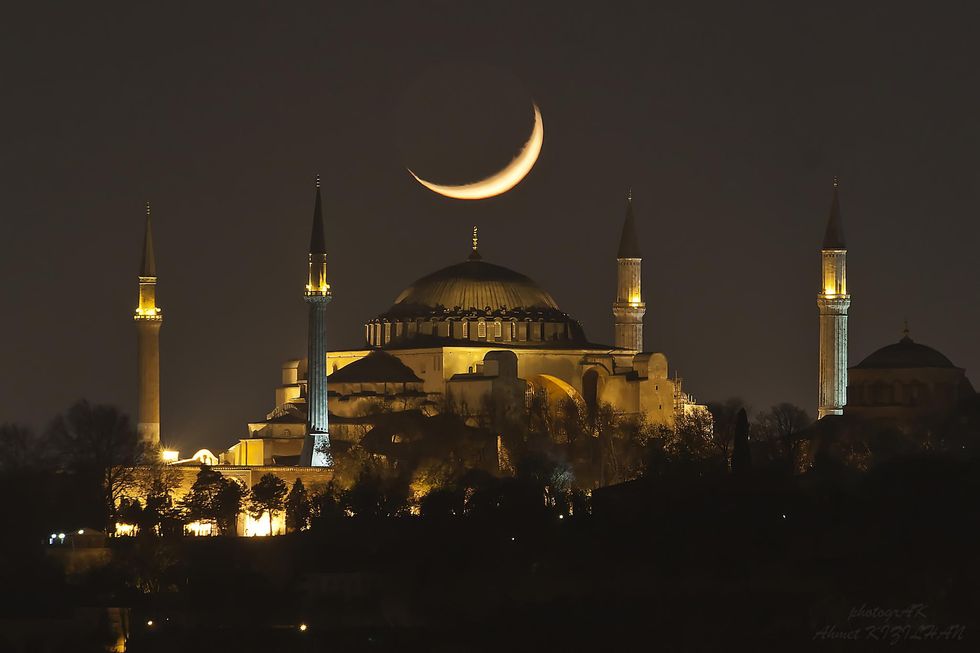Asalamualaikum (peace and blessing be upon you)!
It’s that time of year again, the time of year in which all your Muslim friends stare at your lunch longingly whilst they count down the hours they have left until they can eat again. If you don’t know what I’m talking about or have no Muslim friends, then I’ll just tell you: RAMADAN IS ALMOST HERE!
As I write this piece, Ramadan 2017 is less than a week away and I could not be more excited. Yet despite Islam dominating conversations in the media, many people are still unaware of the religious values and practices of actual Muslims. So in an effort to educate and perhaps change some perspectives, I’ll be writing a series of pieces on Islam and topics of inquiry/controversy regarding my religion. Kicking that off is the month of Ramadan.
What is it exactly?
Ramadan is the holiest month of Islam because the Quran was revealed to the Prophet Muhammed (PBUH) during this time. It’s also one of the 5 pillars of Islam, which are the basic principles of our faith that every Muslim must observe (the others being believing in one God and his last messenger Muhammed, praying five times a day, giving to charity, and making Hajj or pilgrimage to the holy land at least once in your lifetime).
When is it?
Ramadan is the ninth month of the Islamic year. Islam (as well as other cultures and religions) uses the lunar calendar instead of the standard solar (or Gregorian) calendar. The lunar year is shorter (with only 354 or 355 days) as it goes by the lunar cycle which only last about 29 days. As a result, the month of Ramadan commences at a different time every year. Islamic scholars use calculations and observations of the moon’s phases to announce when Ramadan will begin each year, and mosques around the world will take that information and spread it to the masses. This year, Ramadan will begin on May 26th.
What do you do during Ramadan?
During this holy month, Muslims around the world fast from sunrise to sunset. We usually wake in the early morning to eat a meal called suhoor/sehri and we break our fast after sunset with a meal called iftar. Fasting or sawm is not only abstinence from food and drink, but also from things like sex, lying, cursing, gambling and other personal pleasures and/or vices. It is considered a month of spiritual cleansing, self-reflection, patience and self-control. Muslims also try to read as much of the Quran as possible, attend the mosque regularly, pray special night prayers called tarweeh, and give to charity. At the end of the month, we celebrate with a holiday called Eid al-Fitr, where we attend special morning prayers and visit friends/family for Eid festivities the rest of the day.
Why do you observe Ramadan?
First and foremost, fasting is a pillar of Islam that is obligatory for all healthy Muslims (of course excluding pregnant/breastfeeding women, the sick, the elderly, the extremely poor, and those who suffer from eating disorders/other health conditions). But more importantly, fasting is a way for Muslims to tame worldly desires/hunger, and become more in touch with their spirituality and morality. Fasting is also a way to humble us by putting us in the shoes of the extremely impoverished and raising our social awareness.
Along with everything mentioned above, Ramadan has always been a month of unity. A time in which members within and outside the Muslim community come together with love and friendship in observance of faith. There’s a magical sense of togetherness whenever I attend the mosque on Ramadan nights. This magical sense is in the swirling mix of jasmine perfume and scents of iftar cooking in the kitchen where men and women embrace each other with friendship and gratitude. It’s clear when watching families take time to cook for each other, and when one breaks fast in another’s home.
So go fast for a day if you’re physically able, find a local mosque and breakfast with members of your Muslim community, listen to the imam speak his sermon, and learn something new.
Ramadan kareem everyone.






















